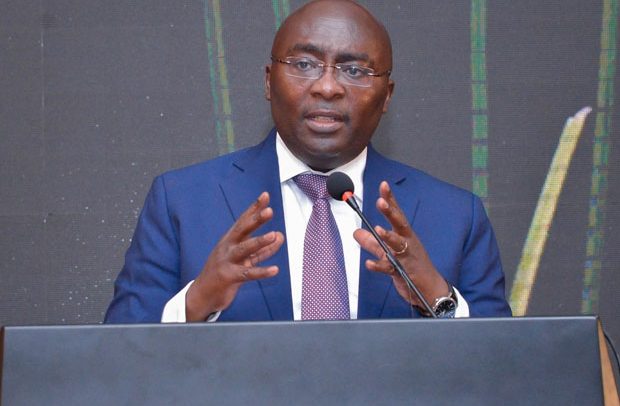The Vice President, Dr Mahamudu Bawumia has announced that the Akufo-Addo government upon assuming office in 2017 has invested GHC6 billion in improving and modernising the TVET sector in the country.
According to the move to combat escalating unemployment challenges, the Vice President, Dr Mahamudu Bawumia, introduced the Ghana Apprenticeship Programme (GAP).
A collaborative initiative funded by the Government of Ghana, the World Bank, and the German Government, GAP aims to modernize traditional apprenticeship systems, aligning them with contemporary job demands.
Dr Bawumia stated this when speaking at the official launch, held in Accra on March 13, 2024, under the theme “Fostering Economic Growth: Job Creation via Apprenticeship Training,”
The program seeks to standardize apprenticeship approaches, link acquired skills to workforce needs, and facilitate Competency-Based Training (CBT) for around 50,000 individuals.
Dr. Bawumia emphasized the unwavering commitment of President Akufo Addo’s government since 2017 to revamp and modernize Technical and Vocational Education and Training (TVET), making it an appealing choice for the nation’s youth.
GAP’s modernization efforts take centre stage, acknowledging apprenticeship’s pivotal role in reducing unemployment.
The program introduces formalized training providers, standardized curricula, and a robust quality assurance framework. This shift to a competency-based approach aims to equip apprentices with practical, industry-relevant skills.
The program’s roadmap includes developing eligibility criteria, training Master Craft Persons (MCPs) and apprentices, assessing and certifying learners, and strategically linking skills to job opportunities. Backed by substantial funding, GAP boasts a budget of US$40 million from the World Bank and €20 million from the German Development Bank.
GAP has already made a significant impact, contributing to skills development and job creation. Notably, Government TVET institutions have experienced a surge in enrollment, with 60,481 new students joining the program. This represents a substantial increase from 41,696 students in 2016 to an impressive 100,086 students in 2020.
Dr. Bawumia expressed optimism for the future, envisioning GAP as a key player in modernizing apprenticeship systems, enhancing industry adaptability, and ultimately boosting the competitiveness of the Ghanaian workforce.
The launch of this groundbreaking program signifies a new chapter in Ghana’s commitment to addressing unemployment and fostering economic growth.
In his opening remarks, Nana Wereko-Ampim Opoku, Chairman of the CTVET Board, highlighted the implementation of Competency-Based Training (CBT) as a crucial reform in the TVET sector.
Dr. Fred Kyei Asamoah, the Director General of CTVET, on his part also emphasized the transformative agenda of President Akufo-Addo’s government, adopting apprenticeship as an avenue for skills development. Stressing the demand-driven, standardized,quality-assured, coordinated, and regulated nature of apprenticeship.
He said he sees the Ghana Apprenticeship Programme as a vital step in addressing challenges within the informal apprenticeship system in Ghana.
As Ghana advances with GAP, it not only confronts youth unemployment but also propels the nation towards sustained economic growth. President Akufo-Addo’s government, by embracing apprenticeship as a strategic intervention, demonstrates a nuanced understanding of the evolving job market dynamics.
The program positions Ghana at the forefront of innovative solutions, offering not just a promising trajectory for individual prosperity but a collective stride toward national development.
-BY Daniel Bampoe

